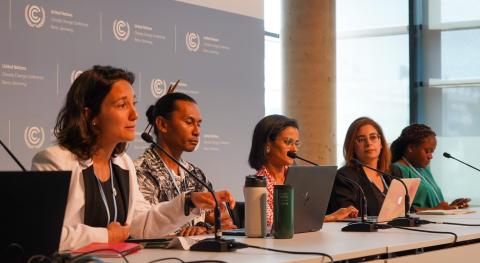
Climate Youth Negotiator Programme 2023
This course is closed. No new enrollments are being accepted.
Welcome to the Climate Youth Negotiators Programme!
We need trusted, effective leaders to achieve climate justice. While multilateral climate negotiations are crucial, negotiations are complex and take extensive knowledge, experience and intuition to master. In short - becoming an effective climate change negotiator takes time (which we’re fast running out of) and money (an issue which entrenches existing systemic inequalities). Truly just and sustainable climate action actively involves all generations in decision making. Young people’s equal participation in climate change decision-making is fundamental to innovative and fair policies that reflect and respond to the needs of the global community and future generations.
We create the next generation of climate change negotiators with the skills, knowledge, networks and resources to deliver transformative change. Hence we propose the Climate Youth Negotiator Programme (CYNP) - a global intergenerational programme aimed at redressing this systemic inequality of youth representation in negotiations and decision making by tackling the root causes of this issue by:
● Empowering and activating young people as positive agents of change
- Developing young people’s negotiation and leadership skills through a targeted training programme so they can become effective climate negotiators;
- The creation of a community of youth negotiators, recognising that global support networks and productive professional relationships are crucial to foster inclusion and increase the effectiveness of youth negotiators.
● Driving systems change to ensure long-term meaningful youth participation in decision-making
- Tackling the existing substantial funding barriers that often prevent young people from participating in climate negotiations through dedicated youth travel grants;
- Transforming mindsets to recognise, value and seek the contributions of young people on Party delegations, through focussed advocacy and outreach.

